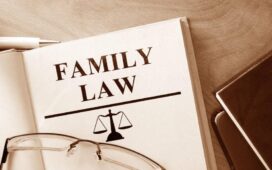Elders, as well as the aged, as well as the aged, should feel protected in nursing facilities. Regrettably, many nursing facilities mistreat their patients in specific ways, whether by physical assault, financial theft, or unjustified activity restrictions (false imprisonment).
Give heed to how that individual is being handled if you are a close family member or friend of someone in a nursing facility. Awareness of typical indications of abuse and neglect in care homes is beneficial. After that, if you reasonably believe that abuse is happening, take action to solve the issue. Contact Laguna Hills Elder Abuse Lawyer to get the best help for the elderly.
Signs of abuse:
The alarm bells of elder abuse vary depending on the type. In summary, if a staff member refuses to let anyone spend time with an older resident, you should be cautious. A person should also be considered if they have a history of being argumentative or disagreeable or if their personality has undergone significant alteration.
Physical abuse indicators are:
- The unexpected loss of weight,
- exhaustion or starvation,
- bruises,
- pressure injuries,
- marks from shackles,
- fractures from accidents,
- over medication,
- and over sedation.
Sexual abuse indicators are:
- bleeding from the genitals
- Venereal illnesses contraction,
- tattered or bleeding underwear,
- and genital bruising.
Verbal abuse indicators:
- The older person scold themselves for minor things,
- appearing depressed or angry most of the whole,
- and shaking, biting, or murmuring — known as “fake dementia.”
- Is one who exhibits excessive dread or worries around particular people.
Financial abuse indicators:
- Losing of private possessions,
- significant, regular transactions from financial institutions,
- money borrowed or loan contracts,
- and recent changes to a will, transfers, or charities
How do you report the abuse?
You must take immediate action if you have reason to believe that a senior citizen has been mistreated or ignored by their nursing facility. What you should do if you think nursing home maltreatment of older adults is as follows:
- Verify the story.
Check if the older adult is speaking the truth as your initial course of action. Discussing the issue with your family or acquaintances will help you understand what they say. Check with some other residents of nursing homes who appear to be in good spirits if you can. Obtain health records or snap pictures of recent wounds and medications.
- Remove the elderly from the facility.
Help a nursing facility resident leave the facility immediately if you are concerned for their safety.
- Inform the authorities responsible.
Notify the state prosecutor or police. If you become aware of abuse and neglect, you may be compelled to report it in certain areas, like California. The state will press charges against the nursing homes if the district attorney decides that the information you provide supports the criminal activity.
- File a complaint.
Send a report about the nursing facility to the adult protection services, senior safety services, or the division of social services in your jurisdiction.















